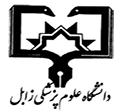(2009) Time course effects of lithium administration on spatial memory acquisition and cholinergic marker expression in rats. Daru-Journal of Faculty of Pharmacy. pp. 113-123. ISSN 1560-8115
Full text not available from this repository.
Abstract
Background: The effects of chronic lithium exposure on spatial memory in rats remain controversial. In this study a time course of the effects of lithium, administered systemically, on spatial memory acquisition in Morris water maze was investigated. Material and Methods: Lithium (600 mg/L) was administered to four groups of rats in their drinking water; the first group of animals received lithium for one week, the second group for two weeks, the third group for three weeks, and the fourth group for four weeks. As controls, four groups of animals received only normal drinking water for the same period of time. Toward the end of their lithium or water treatment, all animals were trained for four days; each day included one block and each block contained four trials. Test trials were conducted 48 hrs after completion of the lithium treatment. Escape latency, traveled distance and swimming speed were evaluated during testing trials. Brain tissues from animals were processed according to the standard protocols for immunohistochemical analysis. Results: Lithium treatment decreased escape latency and traveled distance, but not swimming speed, compared with controls, suggesting significant spatial memory acquisition enhancement by lithium. Quantitative analysis showed that lithium, particularly after four weeks of exposure, significantly increased the number and density of immunostained ChAT-containing (choline acetyltransferase) neurons in the medial septal area in comparison with control groups. There was also a significant correlation between the number of immunostained ChAT neurons and behavioral measures. Conclusion: These results suggest that chronic oral administration of lithium causes spatial memory acquisition improvement in rats and an increase in ChAT immunostaining levels in medial septal nuclei.
| Item Type: | Article |
|---|---|
| Keywords: | lithium morris water maze spatial memory cholinacetyltransferase medial septal nucleus nerve growth-factor signal-transduction pathways alzheimers-disease neurotrophic factor cognitive functions nucleus basalis selective loss medial septum in-vivo brain |
| Divisions: | |
| Page Range: | pp. 113-123 |
| Journal or Publication Title: | Daru-Journal of Faculty of Pharmacy |
| Volume: | 17 |
| Number: | 2 |
| ISSN: | 1560-8115 |
| Depositing User: | مهندس مهدی شریفی |
| URI: | http://eprints.zbmu.ac.ir/id/eprint/2793 |
Actions (login required)
 |
View Item |



